Thank you Jyoti !
A couple of years ago, I attended Jyoti Jain’s Art of Wholesome Cooking course and learned about Ayurveda & Ayurvedic Cooking. I mentioned it back then Here:) She had never made any of the “breads” (we all know Nann but others) back then but this time, yes: … I found her course to be comprehensive and super useful as in … the next day, you can take the recipes and make the delicious dishes (provided you have the spices, that, along with the technique are the keys to successful recreation of her sublime dishes:) She is a certified cooking teacher/trainer from Art of Living Foundation but in her own home cooking, she has always been a talented across the borders cook. She formally became certified in “Ayurvedic” cooking because she felt that Standard American Diet (“SAD”) lacks some aspects of “balance” and felt that incorporating Ayurvedic cooking in our everyday can vastly improve our moods and enhance our health.
It is fascinating to learn different methods and styles of cooking as I had also completed courses in Macrobiotic cooking hosted by Teacher Fumiko Arao (Palo Alto) and Yukie Kawase (of Japan). One is not better than the other – both offerings so much to improve our health and relationship with our body, foods and the cosmos.
From both teachings, what I have learned is the importance of quality protein, mostly plant based; how to flavor them if in Ayurvedic cooking, with herbs and spices; if in Macrobiotic cooking, with Umami rich probiotic seasoning (Miso, Koji, shoyu, dashi). What’s interesting is the vast difference in use of “oil”. Macrobiotic cooking uses virtually no oil; Arurvedic cooking uses abundance of oil, namely Ghee (clarified butter). I have ideas as to why and why this works in each of the cuisines to maximize the flavors.
Again, this is not a contest or a comparison on which is better but it’s really about knowing the wisdom that supports the philosophy of each, both medicinal and both health enhancing when we adhere to the intention of balance, variety and quality nourishment. In both cuisines, reasons for going further, for example to be vegetarian or vegan is usually for philosophical and spiritual reasons, not so much for health. It is interesting though, once you embark on either or both, fusion cooking that’s more plant based, our body either shuns meats or feels at odds when consumed.
A lot has to due with the LOCATION and the CLIMATE of that culture (for example, the health benefits of Mediterranean cuisine is often cited), where that particular cuisine originates. Each cuisine is packed with the wisdom accumulated over time of people who lived in that geographic place which determined their needs. We can take that wisdom and when we know why’s, then, we can do better incorporating the ideas birthed from the wise ancestors to fit the needs of us, living this modern times.
Detox Tea making … homemade “CCF” Tea assists body’s natural ability to flush out toxins or “ama”. Traditionally a combo of Cumin, Coriander, and Fennel seeds; eaten with stewed apples spiced with cinnamon. No sugar needed – plenty sweet.
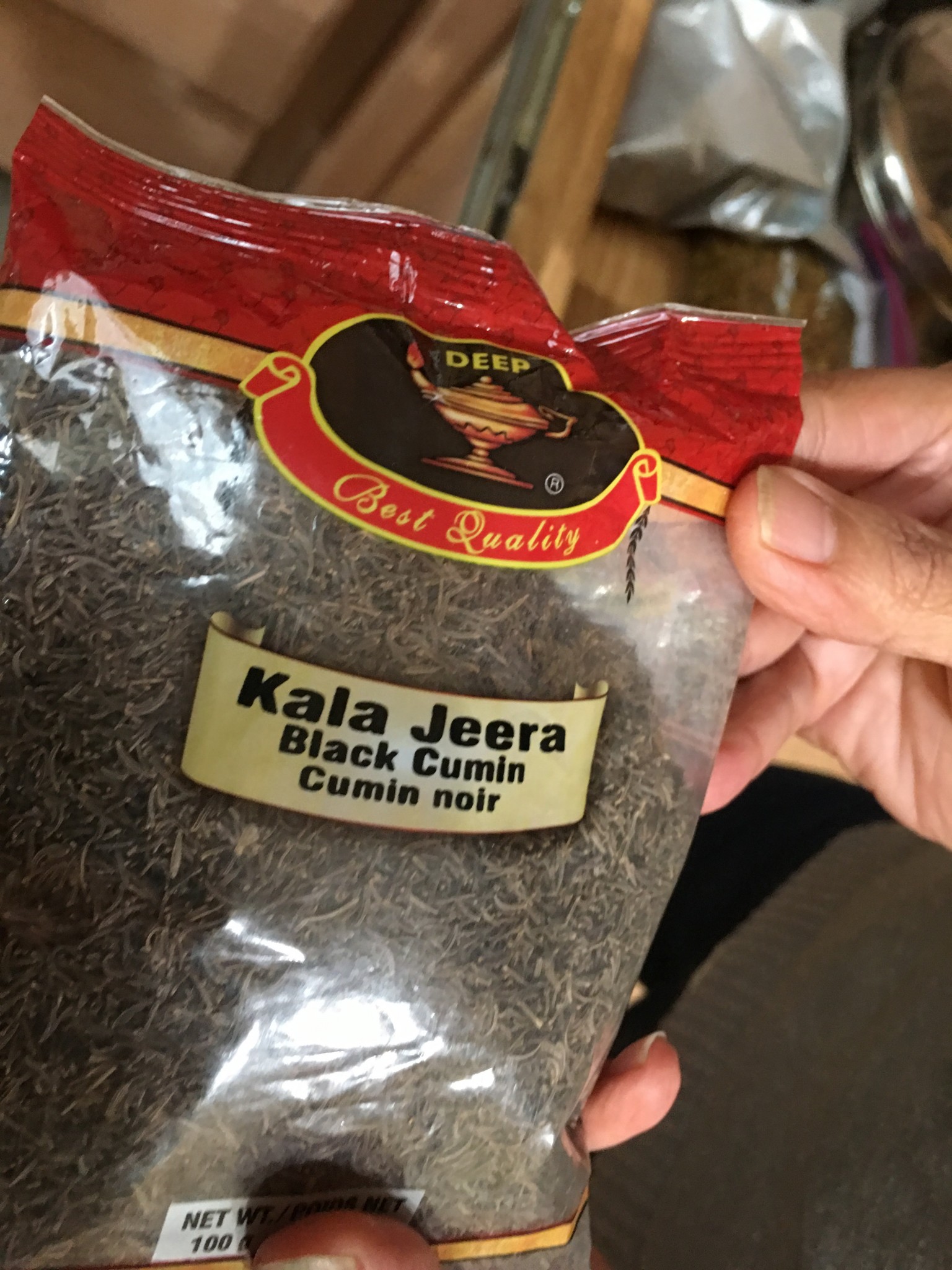
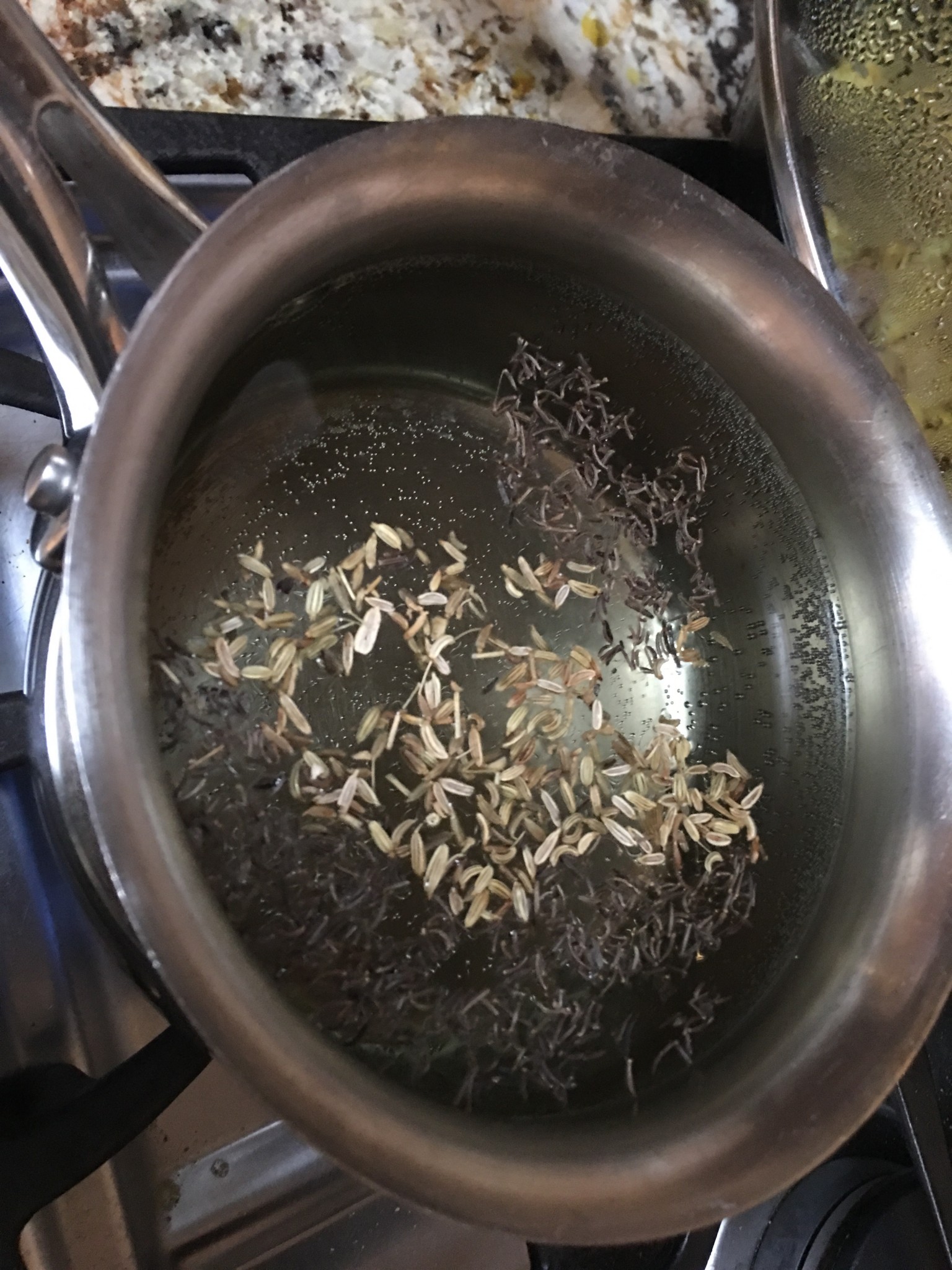
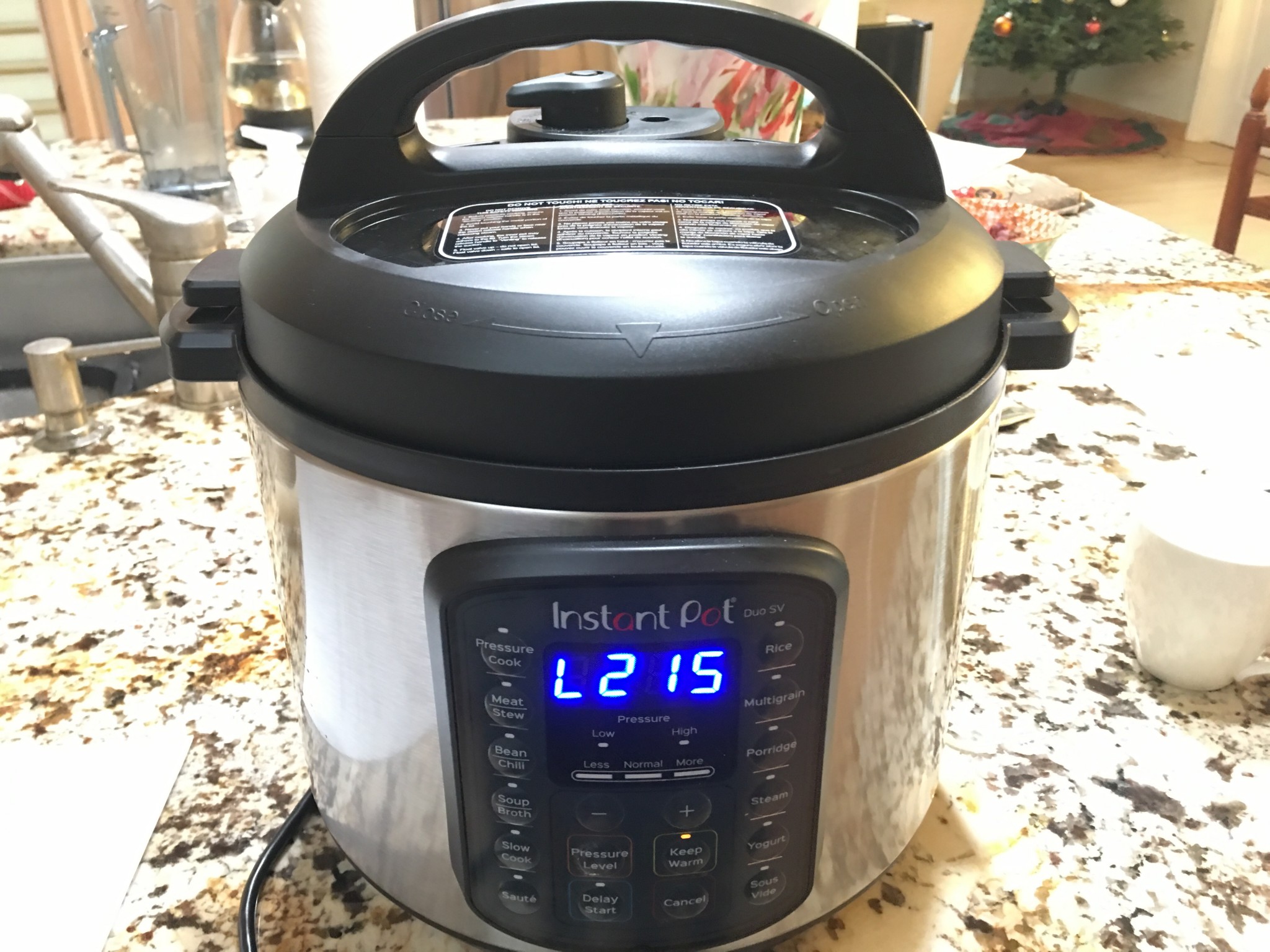
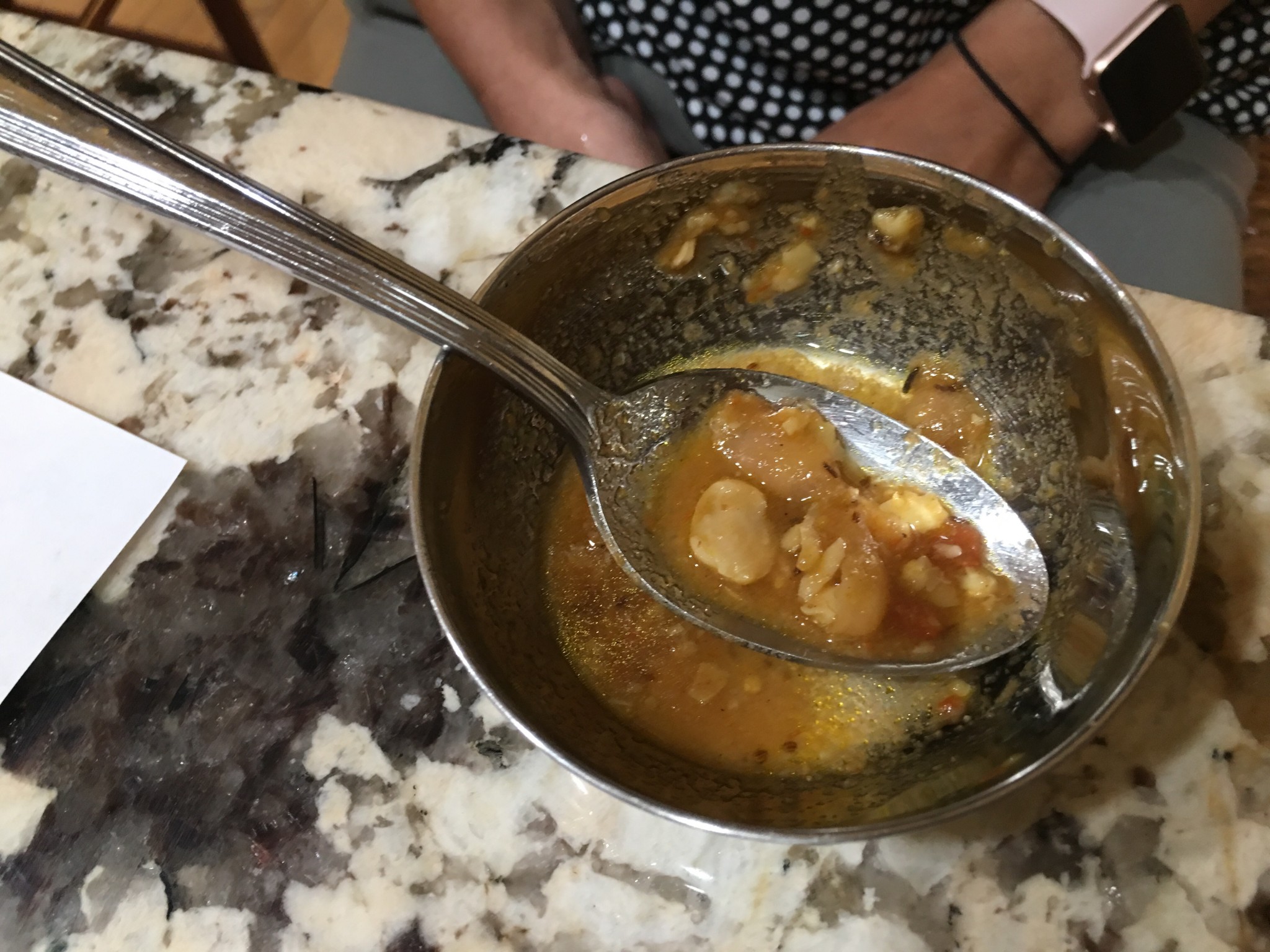
Use of pressure cooker for the chick peas soaked over night, such flavorful stew lovely for the chilly day.
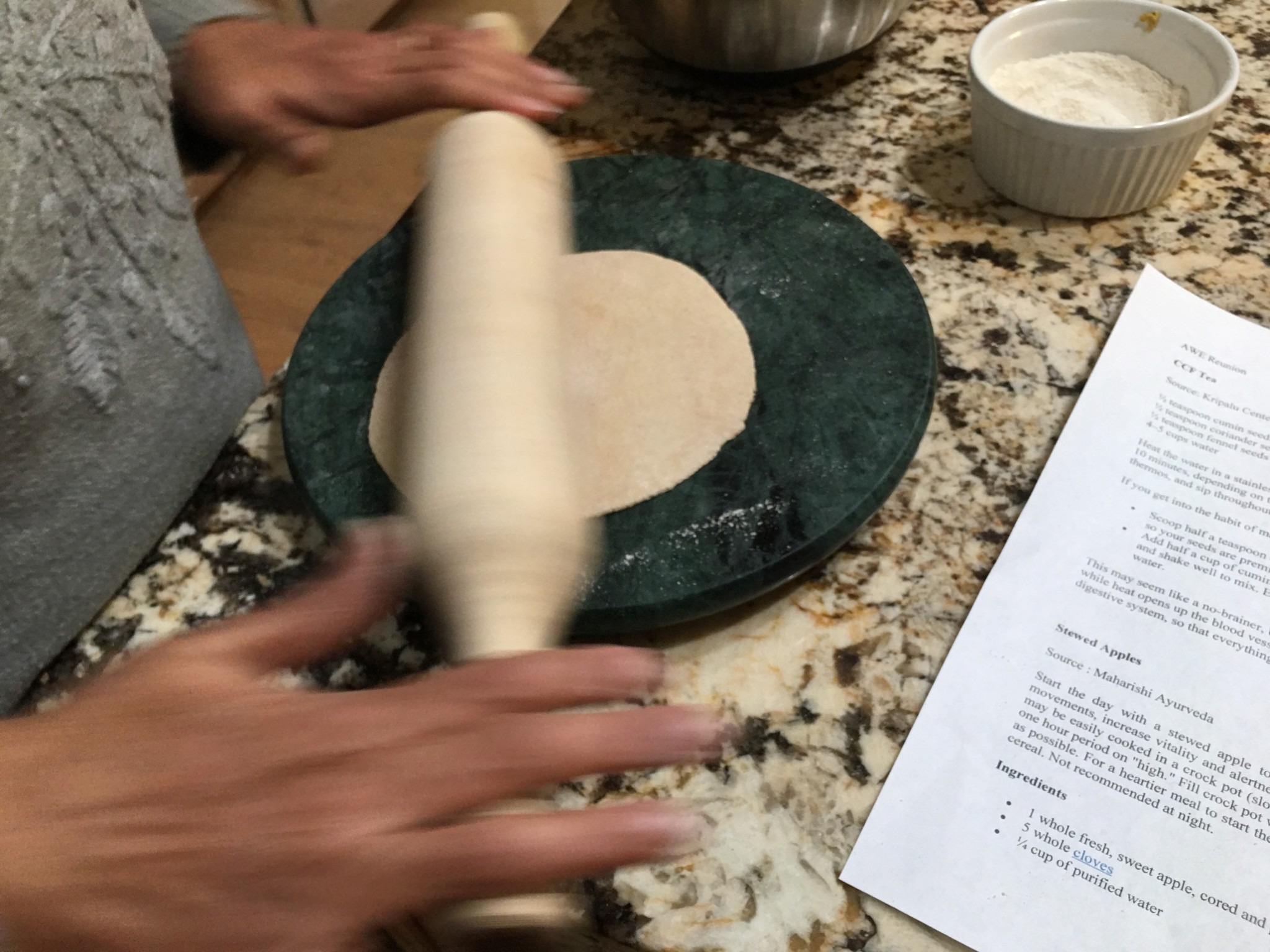
Jyoti just whips up these Chapati (not poori, as these are not fried) by rolling the dough and with hands shapes them and … onto the stovetop for the final grilling to puff. SOOO yummy with a drop of Ghee on top 🙂 She whips them up or shall I say she puffs them up and … eaten warm, right off the grill. Heaven.
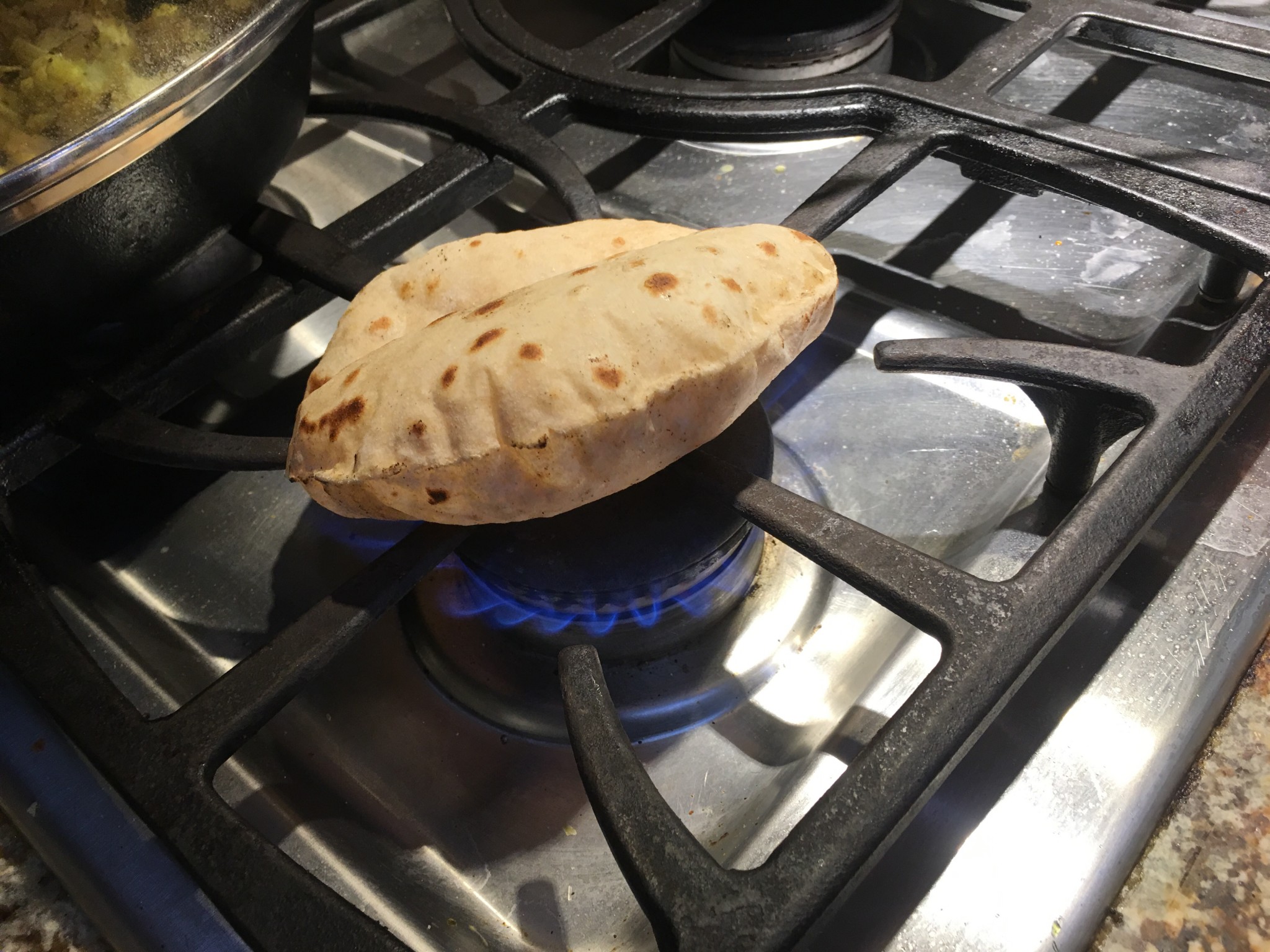
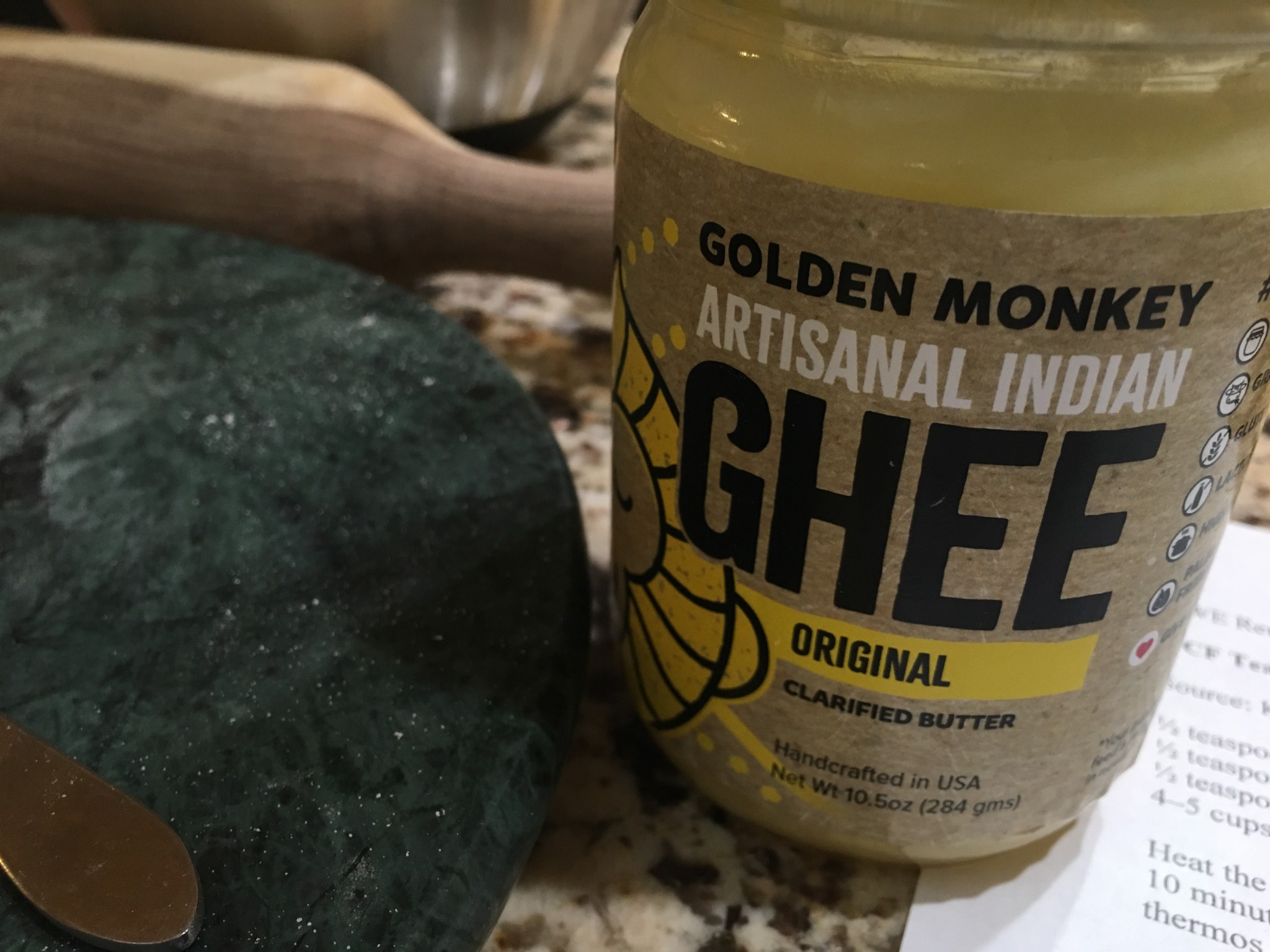
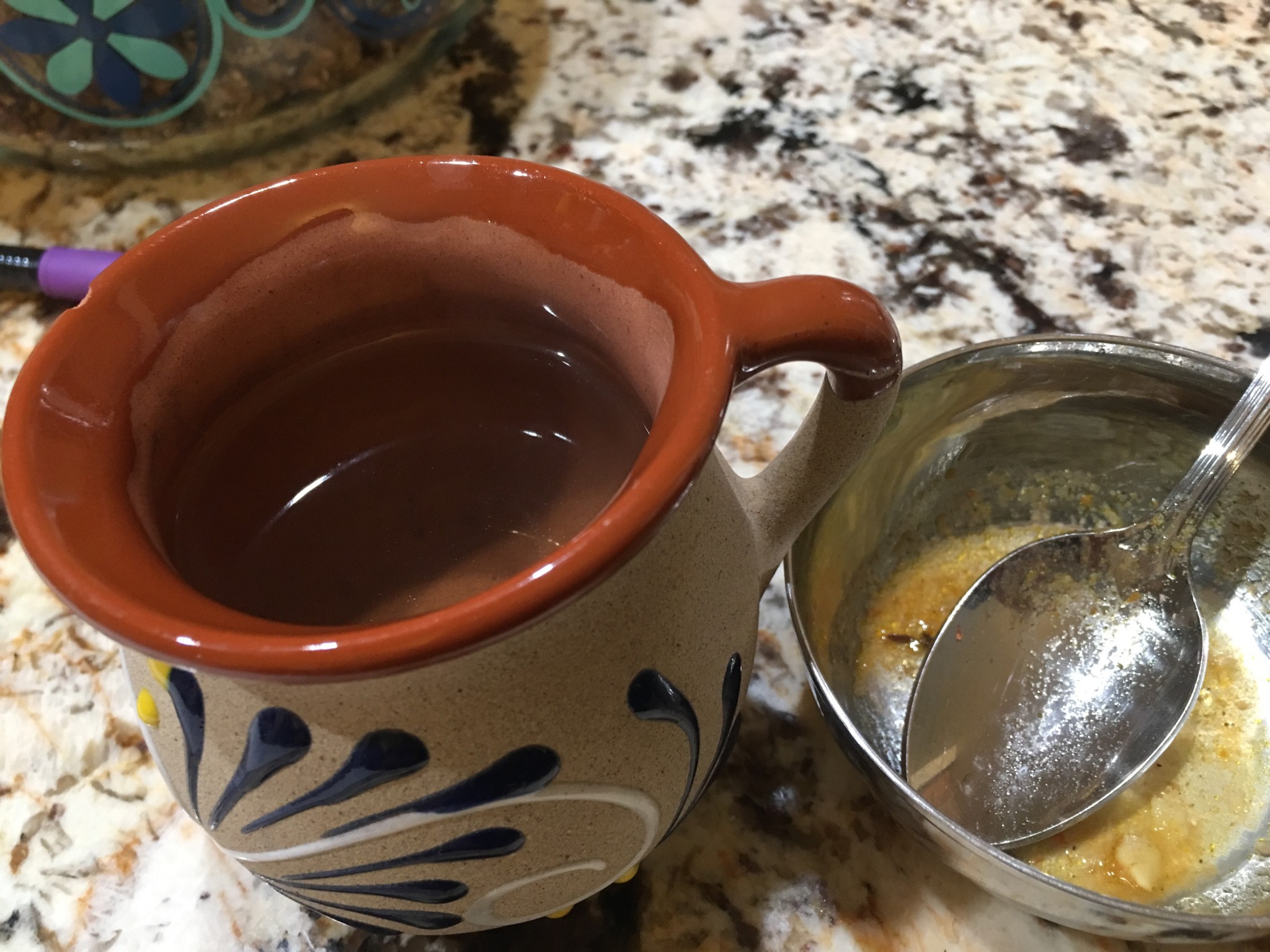
Aruyvedic Detox Tea & the bowl of chickpeas was so so flavorful and good, I forgot to that the photo – an empty bowl attests to the delicious taste.
If you’d like to sign up for her next class, just DM me for more information.